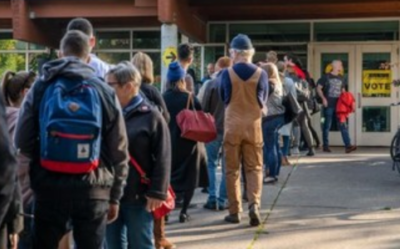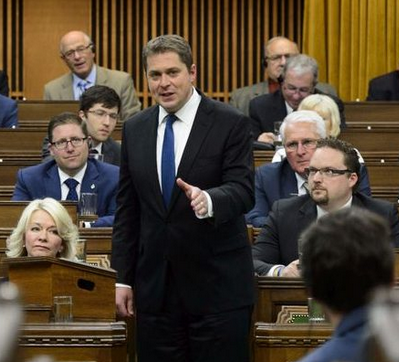October 31st, 2019
BURLINGTON, ON
Part 1 of a 2 part column.
There is no better way to determine the winner in horse races or athletic track events than first-past-the-post (FPP). It is crude and simple but very effective. However an election is not a horse race.
And as for gambling, there is a kind of gaming we employ in our politics – something we call strategic voting. In this last federal election over a third of voters claimed that they had voted strategically, switching their vote from their preferred party to another one. Almost 40% of those switches went to the Conservatives, likely in the west, where the Liberals were deliberately shut out from Winnipeg to Vancouver. And almost half of those who ultimately voted Liberal did so even though the NDP was their first preference.
Clearly something is wrong with our system. If not broken, it could at least be made better because politics should be a serious business, not a crap shoot. And like a crap shoot so many voters are playing the game blind – looking at the polls and making strategic decisions they can only guess will work out for them. A lottery might be a better metaphor.
I’d like to vote for the party whose platform, and perhaps even leader, most appeals to me – doesn’t everyone? Instead we play this game of second guessing the outcome. We vote for a party we may not really want, just to make sure that the one we really don’t want doesn’t get in. Crazy huh? A casualty resulting from relying on a very imperfect and outdated voting system which was never intended for a multi-party democracy.
In fact what voters are doing is playing the odds. It is a kind of intuitive preferential voting in a FPP system. But a real preferential or ranked ballot allows electors to prioritize their selection of candidates, and thus parties. If no candidate gets at least 50% of the vote then second and third choices are counted until somebody gets at least half the voters. That winner is a first, second or third choice of the majority of the voters.
Preferential balloting is a variation on the theme of FPP, since everything but the ballots and counting remain the same. The political parties use preferential balloting in their leadership contests and municipalities are jumping in with at least one foot. It better reflects the public’s wishes and is more democratic. So why not move this approach to, arguably, the most important political contest of all – federal elections?
Mr. Trudeau understands this, or at least did when he was campaigning and promising, in 2015, to get rid of our archaic FPP system. Why he just didn’t implement this system following his 2015 election win is a good question. He decided to follow parliamentary procedures and create a committee. But the committee was dominated by the opposition and they outwitted him, recommending proportional representation, but demanding a national referendum. And ranked ballots never got past the idea stage.
The Conservatives likely have a larger and more loyal base than the Liberals and they certainly raise far more money. Half of those voting Tory had made up their minds before the campaign had even started compared with less than a third for the Liberals. But over 60% of Canada’s electorate prefer liberal-type to conservative policies. So the Conservatives, having become even more anti-progressive in the last couple of decades, would be doomed to perpetual opposition under a preferential voting system.
Yet, as we see, the Tories can and do win under the unranked FPP. For example Mr. Ford won Ontario’s last election with a majority of seats and only 40% of the total vote. And yes many of the party’s candidates failed to get 50% of the vote but slipped up the middle. It is little wonder some voters cannot be bothered voting, the odds are stacked against them unless they are fans of either of the two main parties.
And then there is the hope of political reconciliation. Since a preferential ballot more accurately represents the wishes of the majority of the voters, the main parties on the right and the left would be forced to move more to where the bulk of the voters are if they want to win. Political reality rather than abject ideology should end up playing a greater role in policy. And the third and fringe parties could continue to offer ideas, even though they would face the prospect of fewer elected members themselves, and possibly an eventual demise.

Had the Liberals decided to use a preferential ballot they might easily have landed a majority. It was a horse race you could they’d have won.
That is the downside. That Canada under a preferential balloting system might devolve into a two party system. It would be nice to think that Trudeau was dissuaded from changing our balloting system for that reason – that he was primarily concerned about the consequences for the third parties. After all given the outcome of October’s election, a preferential ballot might easily have landed him a majority. A horse race you could bet he’d have won.
 Ray Rivers writes regularly on both federal and provincial politics, applying his more than 25 years as a federal bureaucrat to his thinking. Rivers was once a candidate for provincial office in Burlington. He was the founder of the Burlington citizen committee on sustainability at a time when climate warming was a hotly debated subject. Ray has a post graduate degree in economics that he earned at the University of Ottawa. Tweet @rayzrivers
Ray Rivers writes regularly on both federal and provincial politics, applying his more than 25 years as a federal bureaucrat to his thinking. Rivers was once a candidate for provincial office in Burlington. He was the founder of the Burlington citizen committee on sustainability at a time when climate warming was a hotly debated subject. Ray has a post graduate degree in economics that he earned at the University of Ottawa. Tweet @rayzrivers
Background links:
Federal Election Results – Strategic Voting –


















Thanks David – I was planning to deal with proportional representation in Part 2. Your references will no doubt be of assistance.
Ray: I think we can also say if the Conservatives had gotten their act together the outcome would also have been different.